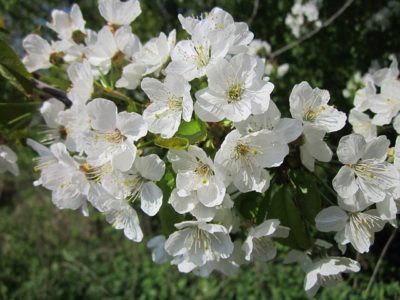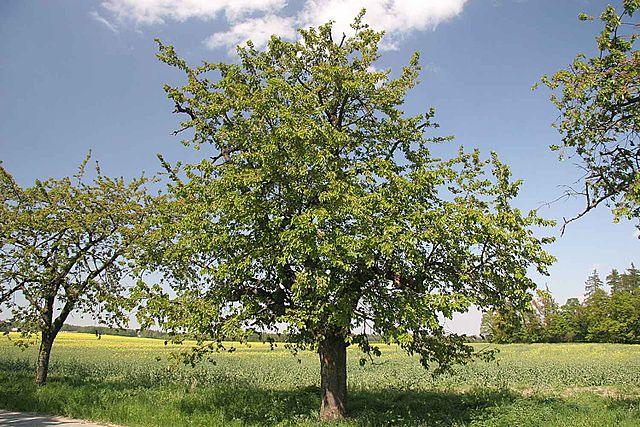Many people love wild cherry trees because of the beautiful white and pink blossoms that show their colors during spring. While these trees are aesthetically pleasing and can add a nice splash of color to a pasture, they can present a grave danger to livestock.
Growing up on a farm, I was always told to be on the lookout for wild cherry trees when walking through the pastures. Once we learned just how deadly they could be to our cattle and horses, we took the time to remove all of the trees from our 40 acres of wooded land.
The Danger
The danger with wild cherry trees lies within the leaves and, in some species, the bark. More specifically, the leaves are only toxic to livestock if they are wilting. It is recommended that you research the species and speak to a veterinarian to learn about the dangers specific to your area.
The leaves of wild cherry trees naturally produce cyanide when they are wilted. When the leaves are alive and healthy, the two components that combine to produce the cyanide are kept separate, but when the leaves are broken down or wilting, the components combine, and cyanide is produced.
Diatomaceous Earth: The All-Natural Livestock De-Wormer!
 If an animal ingests the wilted leaves, the cyanide will suffocate them by preventing the transportation of oxygen in the blood stream. The effects of ingesting the leaves happen very quickly, and often there is not enough time to treat the animal if a lethal amount has been consumed. For each type of animal, the lethal amount of leaves is different, and the amount of time over which the leaves are consumed plays a significant role in the animal’s survival.
If an animal ingests the wilted leaves, the cyanide will suffocate them by preventing the transportation of oxygen in the blood stream. The effects of ingesting the leaves happen very quickly, and often there is not enough time to treat the animal if a lethal amount has been consumed. For each type of animal, the lethal amount of leaves is different, and the amount of time over which the leaves are consumed plays a significant role in the animal’s survival.
More often than not, if an animal consumes a lethal amount, they will be found dead, and symptoms will not be observed; however, it is important to be able to recognize the symptoms so that you act quickly if there is any hope for survival. Most animals will show signs of weakness and distress in the forms of labored breathing, agitation and lack of coordination. If an animal displays any of these symptoms, immediate action should be taken, even if you are not sure that wilted cherry leaves are the cause. Time could be the difference between having a living or dead animal.
How to Prevent Poisoning
Though people say animals should not eat the leaves if they are well-fed and have plenty of grass, we were not willing to take the chance. We cautiously removed every wild cherry tree we found in our pastures. Obviously, cutting down the trees will cause the leaves to wilt, so it is essential to take special care and avoid leaving behind any branches or leaves. Leaf rakes should be used to gather any leaves that fall to the round, and they should be disposed of in a way that will ensure there is no chance of them blowing back into the pasture.
If you are unable or decide not to remove the trees, then walk through your pastures regularly and look for any signs of wilting leaves. You should also make a habit of doing a walk-through after any storms which may have caused any trees to fall or branches to break.
Wild cherry trees are beautiful additions to landscaping, but the threat they pose to livestock is far too great to ignore. Because of how deadly the wilted leaves can be, thorough research is important to learn exactly what species are dangerous in your area. Wilted cherry leaves have the capability to wipe out a small herd if not properly handled. Preventative measures can help reduce, if not eliminate, the chances of that happening to your animals.
What advice would you add on protecting livestock from wild cherry trees? Share your tips in the section below:
Harness The Power Of Nature’s Most Remarkable Healer: Vinegar
 Off The Grid News Better Ideas For Off The Grid Living
Off The Grid News Better Ideas For Off The Grid Living




